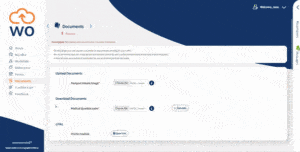On April 6th, 2020 the way that employers are legally required to handle new hires is due to change. This is part of the proposed Good Work Plan, updates to UK employment law designed to create fairer and more open work relations.
To handle these changes requires an understanding of the legislation and an onboarding process that ticks all the Good Work Plan boxes. Here’s a quick and easy guide of some key Good Work Plan: Do’s and Don’ts to help you to get prepared.
Knowledge
Do:
Get to grips with exactly what’s changing
Do not:
Panic…
The Good Work Plan covers some complex areas of employment legislation. So, trying to wrap your head around it all can feel daunting. But it’s really worth taking the time to understand now to save a whole load of potential pain, and expense, after the legislation goes live.
One of the changes introduced by GWP is an increase in the maximum fine for compliance breaches, from £5,000 to £20,000.
Changes: General
Do:
Make sure your employee onboarding process delivers clear and transparent information.
Do not:
Allow new hires to start until they know their exact working status.
The guiding principle that drives The Good Work Plan is to create a simple, fair and transparent process for new hires. This should inform every aspect of onboarding communications with information that’s simple to understand and easy to access.
Changes: ‘Written particulars’
Do:
Check your employee onboarding documentation meets new ‘written particulars’ requirements.
Do not:
Find yourself with a non-compliant process that could result in fines.
A specific change introduced by GWP is with the basic information you need to share with new hires before they start – what’s referred to as the ‘written statement of particulars’. The list of information you are required to provide has been updated. Find more details here.
Changes: Document delivery
Do:
Provide contractual and written statement documents on or before a new hire’s first day.
Do not:
Think the old two-month ‘grace’ period is still valid.
As well as changing what must be included in ‘written particulars’, GWP also modifies when this information must be delivered. The two-month period that employers currently have to provide documentation is being removed – it has to be shared on or before the first day.
This is significant as a recent survey found that more than two-thirds (71%) of UK hiring teams are currently failing to complete paperwork before job start.
Changes: Agency Workers
Do:
Provide agency workers with a ‘Key Facts’ page
Do not:
Ignore proposed changes
If you employ agency workers then the Good Work Plan requires you to start supplying them with a ‘Key Facts’ document – on or before their first day. This is a document which outlines the basic details of their employment terms and status, such as pay rates and fees.
Getting ready: Tools
Do:
Take time to review and improve your employee onboarding management.
Do not:
Get caught out by an outdated and inefficient process.
The new legislation requires having a fast, effective and reliable onboarding process in place. For many hiring teams, this means moving to cloud-based management and an automated and paperless onboarding system.
Getting ready: Expert advice
Do:
Get some expert advice from an employment law specialist.
Do not:
Ignore the proposals – seek advice and think about best practices at all times.
It’s always advised to seek advice and guidance from somebody with specific knowledge and expertise of UK employment laws. Visit our resource centre for help and advice:




